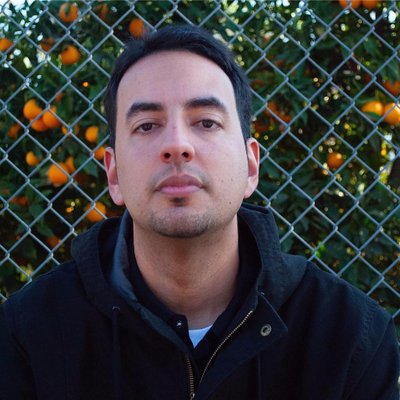
]
A veteran of the scene, the French-Chilean rhymer was putting in work long before larger audiences got to know her through her 2007 guest rap on Mexican singer Julieta Venegas' popular single “Eres Para Mi.” Originally part of the Chilean group Makiza, Tijoux has spent the past few years carving out her career as a solo artist.
OC Weekly (Gabriel San Roman): How does your title track “1977” define not just your album, but also your life?
Ana Tijoux: I made that track not thinking that it was going to be the name of the album. For me, it always has been complicated to make an autobiographical song about myself because it's so egocentric in a certain way, but at the same time, I was remembering my childhood. So that's why I decided to make that track, retaking a fragment of my history when I was a kid and making a song in the end. It's funny at the same time because it's the name of the album.
You were born in France because of the political situation in Chile with Pinochet's dictatorship. When did you eventually come back to Chile?
I was born in France because my parents where refugees. I came back to Chile when I was a teenager. I used to listen to hip-hop in France, but I started to make hip-hop in Chile. Rap became more than just a hobby here.
Your album 1977 has '90s hip-hop influences beat-wise, as well as touches of other genres of music such as jazz. How do you approach the sounds that back up your rhymes?
I know that people love to make differences between their styles, whether it's hip-hop, folk or indie pop, but in the end, I think it's more about music. In my case, I've always been very influenced by music. In my house, with the political situation of my parents, we had a lot of Latin folk playing, which is a kind of folk with a lot of lyrics. It's not hip-hop, but in the way I see it right now, it is very hip-hop. At the same time, I used to listen to N.W.A and African music, so I love music in general. Even right now, I don't like to close myself to one style of music. I think music is so amazing and a universal language of love. And that's why all throughout the album, there's a lot, but not all, of those influences.
What's the dynamic between Chilean hip-hop and its counterpart in the United States in terms of larger questions of identity?
It's funny because for me and my case, I'm the second generation of parents who have been jailed and all that. And at the same time, a lot of us listen to North American rap. At the end, I don't see it as “other countries.” It's about a similar anger. There is a language of anger and impotence that crosses over all the countries. It's not about North American, Chilean, French or Tunisian rap. Hip-hop right now is the universal language. There can be a ghetto in São Paulo, Santiago, Oakland, and all the topics repeat over and over again. The population wants access to education, health or whatever. Hip-hop is the common language. I have always seen hip-hop as a new country. Of course, in this case, North America hip-hop influences us because hip-hop was born in North America. At the same time, I think it is interesting how the hip-hop evolution has taken to every country around the world. When you take a kind of music like that, you begin to make that music in your own way. That's why I think it is a universal music right now.
Finally, what was your reaction to being nominated for a Grammy this year?
My first reaction was, like, “Wow!” I didn't believe it. I thought it was a joke. I'm grateful. I'm very proud of the work that we made and of all the people who worked on the album. For me, even if we don't win this Grammy, we win for us in a certain way. We made an album with not that much money in the last country at the end of the world. We are nominated for something like that? We are grateful because we never thought about it. Crazy!
Ana Tijoux performs at the Bootleg Theater, 2220 Beverly Blvd., Los Angeles; www.bootlegtheater.org. Sat., 8:30 p.m. $12.
And at the Casbah, 2501 Kettner Blvd., San Diego; www.casbahmusic.com. Mon., 8:30 p.m. $8-$10. 21+.
Follow Nacional Records on Twitter for information on a soon-to-be-released mixtape by Ana Tijoux.

Gabriel San Román is from Anacrime. He’s a journalist, subversive historian and the tallest Mexican in OC. He also once stood falsely accused of writing articles on Turkish politics in exchange for free food from DönerG’s!


awesome